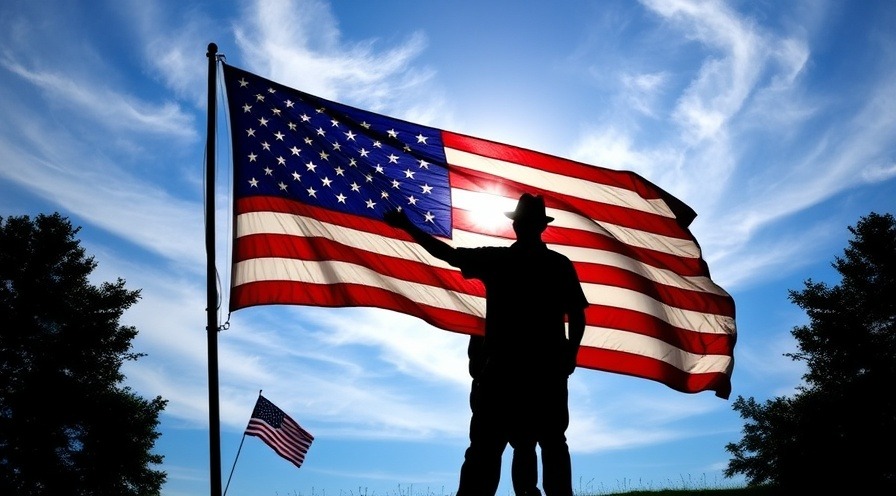
The Background of Proposed Job Cuts at the VA
In a shocking move earlier this month, leaked proposals indicated that the Department of Veterans Affairs (VA) is considering eliminating over 80,000 jobs, a decision that could devastate the workforce that provides crucial services to millions of veterans. This potential restructuring is seen as a direct consequence of President Trump's executive orders aimed at downsizing the federal government. With veterans constituting a significant portion of the federal workforce, the implications of this decision are unsettling.
Veteran Voices: Fear and Uncertainty
The proposed cuts have ignited heightened anxiety among veterans, many of whom rely on the VA for continuous support after their military service. National Commander of the Disabled American Veterans (DAV), Daniel Contreras, expressed his deep concerns, emphasizing that the impacts extend beyond mere job losses. The mental health fallout for veterans losing their jobs can be substantial, as fear and uncertainty proliferate within the community.
As Contreras noted, "Our hearts are with the many veterans who are or will be losing their jobs." Veterans find themselves grappling with not only financial instability but also emotional distress as they navigate their future post-employment.
Impact on Services and Benefits
More alarming is the potential fallout on the quality of VA services. With workforce reductions happening at a time when the demand for veteran services has surged—amplified by recent legislation like the PACT Act—there are fears that the quality and availability of essential services may diminish. Opponents of the cuts, including veterans' advocates, are concerned that this may compromise the effectiveness of the healing and support systems that have been painstakingly built over the years.
Rep. Mark Takano voiced concerns about how these cuts could lead to chaos within the VA, resulting in delayed benefits and hindered claims processing. Such delays would directly affect veterans, many of whom depend on timely support for their health and well-being.
Post-9/11 Veterans: Unique Challenges and Support
The implications of these job cuts are particularly acute for post-9/11 veterans who may require unique support systems. Programs focusing on holistic wellness and mental health resources, including support groups and nutritional guidance, are more critical than ever. Veterans transitioning to civilian life often face challenges such as job placements and financial planning services, magnified in uncertainty brought on by these cuts.
Access to programs like yoga and mindfulness initiatives for veterans with PTSD has been recognized for fostering emotional resilience, which could be jeopardized due to staffing reductions.
A Call for Action: Community Support and Advocacy
In response to this troubling development, veterans' organizations, like DAV, are mobilizing to advocate against these proposed cuts. Their message underscores the importance of community support for veterans—be it through employment resources or family support services that help maintain stability during uncertain times.
It's crucial for veterans and their families to be proactive, not only by pursuing available support but also by becoming advocates for their community. Engaging with support groups for PTSD and leveraging peer mentoring programs can create a robust support network during these turbulent times.
Moving Forward: Seeking Solutions
As we collectively navigate this landscape of uncertainty, advocacy for legislative solutions becomes paramount. Engaging in dialogue surrounding the importance of the VA's role in veteran health care is vital, especially as we face potential cuts that threaten the progress made under the PACT Act. Ensuring that every veteran receives the support and care they have earned is not only a responsibility but a moral obligation.
In conclusion, the proposed VA reductions reflect a larger conversation about how we prioritize veteran care in our society. It is a complex intersection of policy, community, and individual well-being. We must commit to supporting those who have served us, advocating for their needs, and ensuring they have access to the resources they deserve.
To enhance your wellbeing or find support as a veteran, explore holistic programs tailored for veterans and seek out local DAV chapters. You are not alone in this journey.
 Add Row
Add Row  Add
Add 




 Add Row
Add Row  Add
Add 

Write A Comment